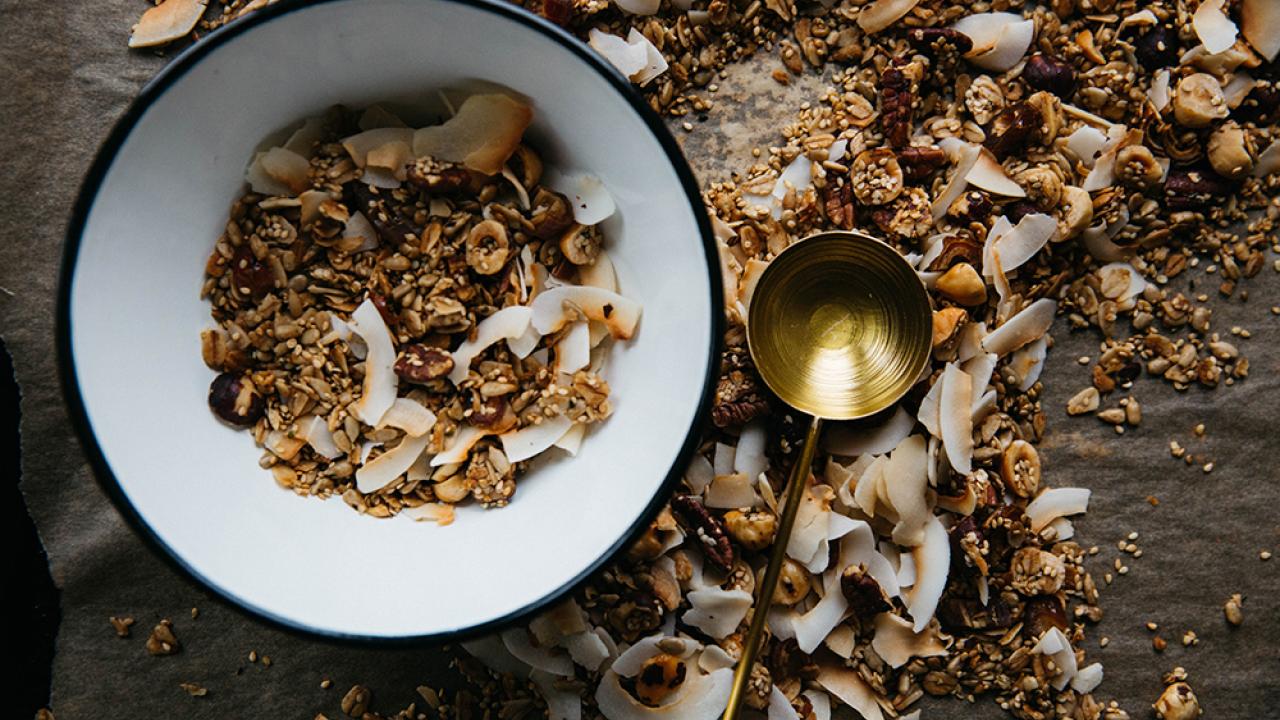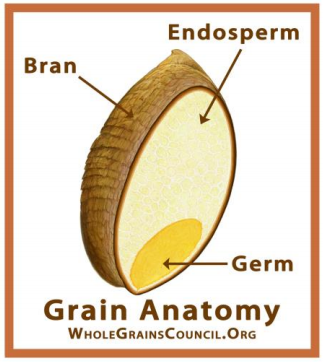
Incorporating Whole Grains in Your Daily Life
During September, National Whole Grains Month, add whole grain items on your grocery list!
 Most of us probably have seen “whole grain” labels on many products and heard that whole grains are good. But why is whole grain healthier than refined grain?
Most of us probably have seen “whole grain” labels on many products and heard that whole grains are good. But why is whole grain healthier than refined grain?
What’s the difference between whole grains and refined grains?
A whole grain is a grain that contains all three parts of the kernel (seed)—endosperm, germ, and bran. The endosperm is the largest part of a kernel that contains starchy carbohydrates, proteins and small amounts of vitamins and minerals. It is the main source of energy of the grain. The germ is the embryo of the kernel that allows the growth of a new plant and contains many B vitamins, minerals, healthy fats, and some proteins. Bran is the edible outer layer of the kernel that is high in B vitamins, fiber, and antioxidants. In contrast, a refined grain is industrially processed by removing the germ and bran to make it softer and smoother. Only the endosperm portion of the kernel is left and it does not contain the B vitamins, minerals, proteins, healthy fats, and fiber of the whole grain. While there are some enriched refined grains on the market, not all nutrients are added back to the refined grains. Therefore, whole grain products are healthier options than refined grain ones.
Additional Nutrients in Whole Grains:
Fibers
Whole grains contain a much more fiber—non-digestible carbohydrate, than refined grains. Fiber helps maintain blood glucose levels by slowing down digestion and absorption of carbohydrates. It also aids the digestive system that helps the gut bacteria produce short-chain fatty acids and maintain gut integrity. Fiber also helps with weight loss by keeping you satiated without adding additional calories. It also may increase fat excretion by trapping some dietary fat.
B Vitamins
B vitamins Thiamin(B1), Riboflavin (B2), and Niacin(B3) assist in converting carbohydrate into glucose and producing energy. Vitamin B6 helps red blood cells carry oxygen and helps to maintain a healthy nervous system. Folate (B9) is important to prevent macrocytic anemia and neural tube defects in a developing fetus.
Healthy Fats
Whole grains contain Omega-3 fatty acids. These are anti-inflammatory and lower the risk of chronic disease. Vitamin E is a fat-soluble vitamin that is found in whole grains, and is also an important antioxidant .
Minerals
Whole grains contain Magnesium, Potassium, and Iron; these minerals contribute to our overall health. Magnesium is good for gut health, nervous system, skeletal muscles, and bones. Potassium is involved in fluid regulation, muscle contraction, and blood sugar balance. Iron helps strengthening immune, muscle, brain, and circulation systems. Many refined grains lack these minerals. Compared to refined grains, whole grains take longer to cook. This can be inconvenient, but start it cooking before preparing the rest of the meal. It is a big win for your overall health.
Sources: Oldways Whole Grain Council